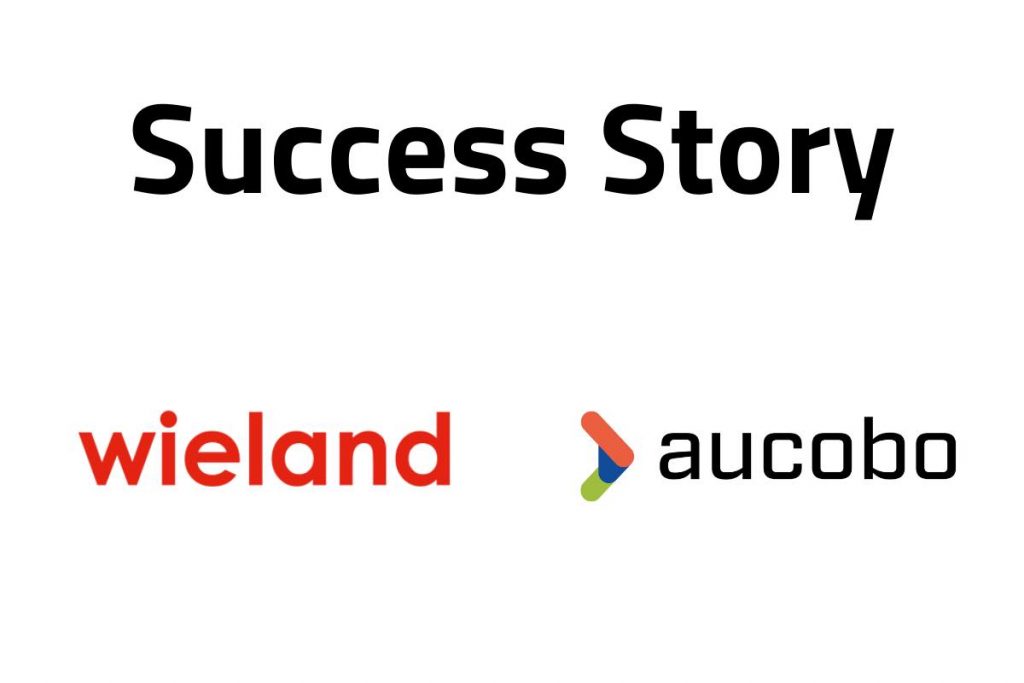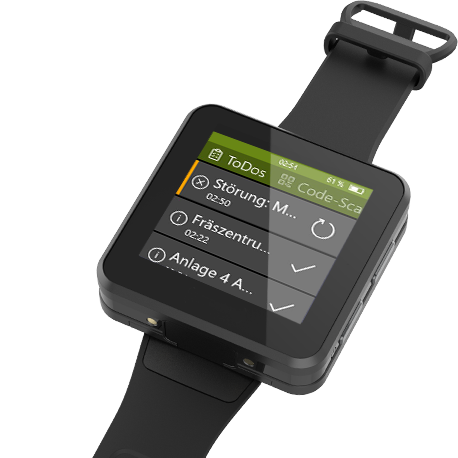
Optimization of quality assurance
Increase in
employee productivity
As the leading global specialist for copper and copper alloys, Wieland supports its customers’ success from numerous locations and continents – with reliable, flexible supply and the best service in consistently high quality. For the global challenges of our time such as climate change, digitalization, resource conservation, Wieland designs sustainable and innovative solutions with its products, services and technologies.
Wieland knows how to listen in order to offer its business partners exactly what meets their requirements and convinces its customers with the right solution – and has been doing so for 200 years and 8000 employees.
Always striving for innovation, Wieland was looking for a process to digitize surface inspection in production.
With the help of the interaction between the aucobo solution and smart wearables, more than the originally set project goal could be achieved. Quality assurance was significantly optimized and employee productivity increased. Since this could be implemented quickly and smoothly, there was still time to carry out another implementation, which was not planned at the beginning.
In the following you can read about the challenge Wieland faced and how aucobo was able to help with the solution.
Challenge: Digitization of the surface inspection process
The challenge was to simplify the surface inspection process and the associated documentation.
Previously, there was a document on which employees manually recorded the inspection information. This was then forwarded to the foreman’s office and many other stations before finally being filed.
The process was not only time-consuming, but also harbored sources of error. As soon as an employee forgot his signature, for example, the whole process had to be followed up to obtain complete documentation.
To make this process more secure and time-saving, Wieland sought a digital solution, initially with a competing product. However, for a number of reasons, this did not meet its goals, so Wieland had to reorient itself.
Since the company was still committed to the idea of digitization, it was clear that a new smart solution had to be found.
Solution: Digitization of the inspection process with the help of smart wearables

The use of the aucobo system allows Wieland a much smoother process, better communication, as well as increased productivity in production.
With the integration of the smart wearables, the workflow of the employees has been significantly simplified. The smartwatches are connected to the central MES (Manufacturing Execution System) so that employees are notified at regular intervals when they need to perform a surface inspection.
In addition, once at the respective machine, employees can scan a QR code and are then automatically redirected to the inspection process. Once the inspection has been performed, the employee can select on his smartwatch whether everything is in order.
If not, he will be shown various error options to choose from. Here, the employee can ensure that the correct information quickly reaches the responsible person by simply selecting a category.
“Fast problem solving was the key to success”
The biggest advantage of implementing the aucobo system at Wieland is the minimization of organizational effort. This benefits the production staff in particular. Due to certain production targets and deadlines, they are often under pressure anyway, so additional paperwork only slows down the workflow.
This is also a reason why production employees are usually not very open to new ideas. Long implementation times or error corrections additionally complicate the daily routine. This was hardly the case when using the aucobo system. The fast cooperation and also error correction convinced the production employees.
Furthermore, the distances within the production halls could be reduced significantly. The employees now only have to go to the respective plants when an inspection is required and the reminder appears on the smartwatch. In addition, it is possible to trigger an inspection manually, so that employees can better coordinate their tasks.
Additional benefits: Digitization of the ordering of auxiliary and operating materials
In addition to the original project goal, the digitization of surface inspection, another function was introduced.
Previously, paper kanban cards were used for reordering auxiliary and operating materials. The data noted on them had to be manually transferred to the ordering system when ordering. This process has been greatly simplified by adding a QR code to the kanban cards. Now the cards are scanned and this triggers the ordering process.
Stefan Eckel (IT Wieland) described the fact that the entire project could be successfully carried out “remotely” as a WOW effect. This helped to save a considerable amount of time and reflects the good cooperation.
Overall, Stefan Eckel emphasizes that the quick problem solving was the key to the success of this project and that the project team harmonized super.
Do you face similar challenges in your company?
Then get in touch with us now and let our experts advise you in detail!
